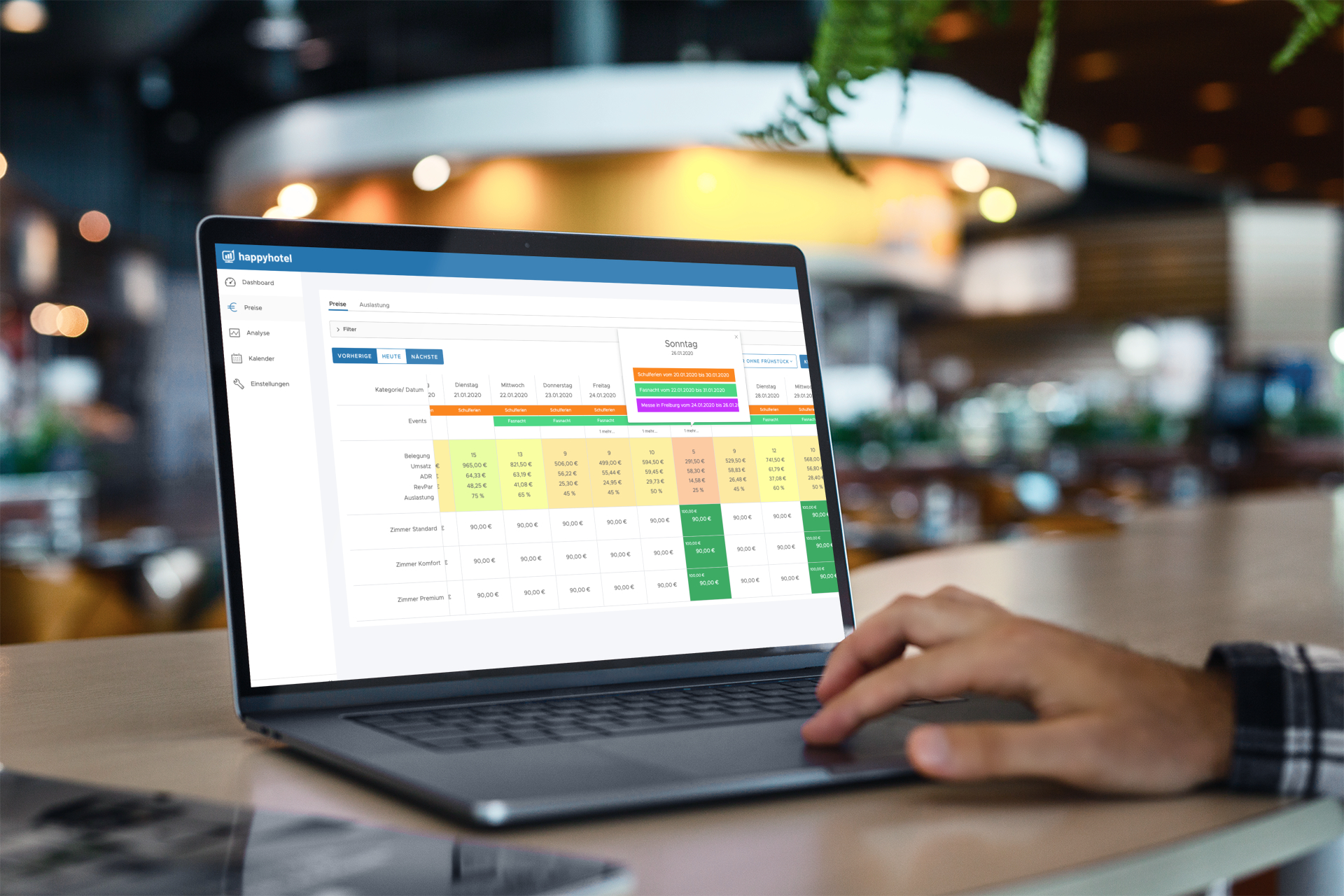
There are various reasons why staying ahead of competitors is critical in present-day business. As such, revenue management software has become an important tool for improving the profitability of firms in different industries. In this article, we take a deeper look into the inner workings of revenue management software and how it can bring the profitability of hotels significantly higher.
The Dynamics of Revenue Management Software
The well-established strategy of revenue management in industries such as hospitality, airlines, and retail involves optimizing the pricing of goods and services in order to achieve maximum revenue. The key aim is to achieve equilibrium between supply and demand. Therefore, businesses are increasingly opting for revenue management software to achieve this outcome effectively.
Revenue management software can also be described as “smart,” as it enables companies to make decisions on how to set prices to gain the best returns possible. Such systems deploy data analytics and algorithms to create an informed pricing strategy that allows companies to maximize profits from their products or services.
Characteristics of a Revenue Management Program
- Demand Forecasting: Historical data and market trends are used by revenue management software to make accurate predictions of future demand. This enables companies to charge prices consistent with the prevailing market trends.
- Dynamic Pricing: These systems permit companies to change their prices in response to changes in consumer demand and the prices of competitors, among other things.
- Inventory Management: For a business to be successful, inventory management is critical. The revenue management software makes decisions with respect to stock levels and pricing so as to minimize the losses resulting from perishable goods.
- Yield Management: Such a feature helps companies sell the right things to the right customers at the right times and at the right prices for maximum revenue.
Revenue Management Software and Its Impact on Hotels
Revenue management software is instrumental in the hotel industry by increasing profitability. As with any other business, hotels operate in a constantly changing environment, which is influenced by such things as seasonality, local events, and global economic conditions. Thus, the introduction of revenue management systems boosts returns for hotels.
- Optimizing room pricing: This is one of the largest applications of revenue management software in the hotel industry, where it is used for optimizing room pricing. Such systems take into account, e.g., local demand, seasonal trends, and some events that can lure tourists. Through this, the hotels are able to attract more customers during off-peak periods while maximizing their profits during peak seasons.
- Improved occupancy rates: Good revenue management software ensures that hotels run at optimal levels of occupancy. Hotels can attract budget-conscious travellers and reduce the likelihood of empty rooms by offering competitive rates during periods when occupancy is low. Such a thing generates extra income and contributes to paying off the fixed costs of running the hotel.
- Effective marketing strategies: The other advantage of revenue management software is that it helps devise powerful marketing strategies. Analyzing the data of past guests, their preferences, and their behaviour allows hotels to direct their marketing activities more accurately. Personalization helps in creating loyal guests who come back for more business.
- Customer Satisfaction: Customers who find the service satisfying are more inclined to come back again and refer it to others. Customer satisfaction comes when revenue management software ensures that the guests derive value from the money they pay. When the customer feels he was paid an appropriate price for the services of that level, he or she is most likely to become a regular client.
- Data-Driven Decision Making: However, one of the main reasons why hotels should implement revenue management software is that it enables them to make strategies based on data. It thereby eliminates the need for manual and error-prone price determination. In fact, the software uses a large amount of information and market trend analysis to make pricing decisions that are evidence-based rather than entirely based on speculation.
Challenges and Considerations
Revenue management software indeed has its advantages, but not without its problems. It is essential for hotels and businesses to consider these factors when implementing such systems:
- Initial Investment: Investing in acquiring and implementing revenue management software is a substantial investment. The initial cost, in most cases, may seem high, but the promise of long-term profits rationalizes it.
- Training: It is essential for staff to undergo comprehensive training on how to effectively use these systems. It’s imperative that the team be well-acquainted with the software’s features and functionalities in order to succeed and harness its full potential.
- Integration: The seamless integration of revenue management system with other crucial hotel management systems, such as property management and customer relationship management, is paramount. This ensures that all facets of the hotel’s operations work cohesively, enhancing efficiency and the overall guest experience.
- Data Quality: The effectiveness of these systems is intricately tied to the quality of the data input. Achieving precision in pricing decisions requires not only accurate but also current and up-to-date data information. Maintaining data integrity is critical to ensuring the software’s reliability and the success of revenue management strategies.
Conclusion
For instance, revenue management system is very good at increasing profits considerably, and this is particularly true for the hotel industry. The revenue management for hotel software allows businesses to apply data analytics, demand forecasting, and dynamic pricing to best price their products and services for maximum profitability. Such electronic revenue management systems, when applied with regard to hotels, help in getting better room pricing, increasing occupancy, improving marketing strategies, boosting customer satisfaction, and result-oriented decision-making, among others.
Today, informed decision-making in pricing is paramount in a competitive business environment. With revenue management system, companies can take advantage of new opportunities as they arise, eventually improving their bottom line. Specifically, such systems could be quite advantageous for hotels since they would help the organization price its rooms optimally, keep occupancy levels high, and guarantee that its customers are satisfied with each stay. It is challenging, though, and over a long period, the returns are much greater than the inputs required at the beginning.


